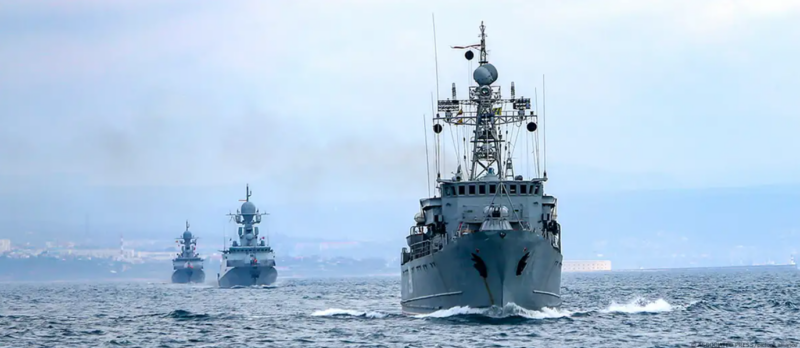
Over the past week, the United States has held separate negotiations with Russia and Ukraine in an attempt to stop fighting in the Black Sea, a crucial trade route for food exports, as part of the broader goal of ending the war between the two countries.
On Tuesday, the White House reported that both countries had agreed to a ceasefire and allow navigation in the region. Ukrainian President Volodymyr Zelenskyy announced that the ceasefire would take immediate effect. However, the Kremlin said the ceasefire would only take effect once certain conditions are met, including the partial lifting of sanctions pertaining to Russian companies and banks involved in international food trade.
A similar truce was in place between 2022 and 2023 but was later broken by Russia. That deal, brokered by Turkey and the United Nations, allowed for the uninterrupted export of Ukrainian grain. Russian President Vladimir Putin withdrew from the deal over the West’s failure to meet certain conditions, including reconnecting the Russian Agricultural Bank to SWIFT, a high-security system for rapid money transfers based in Belgium.
The UN believes that global food security would be boosted significantly if a new agreement is reached.
Black Sea a key trade route for Russia and Ukraine
Despite apparent disagreements, experts told DW that the parties involved in the negotiations will likely reach a ceasefire in the Black Sea soon.
Alexandra Filippenko, an independent researcher based in Lithuania, calls this agreement “the biggest of all the small steps” discussed during the talks. She believes it will help reduce the risk of escalation, which is unlikely to benefit either side or the rest of the world.
According to the UN, the Ukraine grain deal facilitated the export of 32 million tons of grain to 45 countries across three continents between July 2022 and July 2023. As UN Secretary-General Antonio Guterres said at the time, the deal was crucial for global food security.
For Russia, the Black Sea is a key route for grain delivery from the country’s southern regions. In the partially pre-war season from 2021-2022, 86% of all grain shipments were through ports on the Azov-Black Sea basin, according to Forbes. These exports were
Ukraine is one of the world’s top grain exporters, with its main buyers in North Africa, the Middle East and South and Southeast Asia. The stability of the Black Sea is crucial for the nation’s economy.
What’s the situation in the Black Sea now?
In a recent interview with the European Broadcast Union, Zelenskyy said that Ukraine controls the situation in the Black Sea.
“They (the Russians) have not controlled the Black Sea corridor for a long time. We are fighting for it because it is a step toward ending the war. We control the situation in the Black Sea,” Zelenskyy said.
Alexander Paliy, a Ukrainian political analyst, told DW that over the past year, Russia has found itself pushed into the eastern part of the Black Sea and has been unable to launch full-scale attacks in the region. He said Ukraine achieved this through the use of maritime drones.
As a result, grain trade is operating at more or less pre-war levels, Paliy said. Therefore, he believes a new grain deal would be more beneficial for Russia.
“Ukraine could attack Russian ships involved in oil exports or other exports at any moment. However, [Ukraine] does care about environmental impact, and the positions of countries like Turkey and the US are important. That’s why Ukraine has been very cautious,” Paliy said.
Russia’s growing influence in the Black Sea
Russia’s presence in the Black Sea is crucial not only for trade but also, as the Kremlin has repeatedly stated, for the country’s security.
Under international law, Russia owns only about 10% of the Black Sea coastline. However, through its growing influence in the region, Russia effectively controls about a third of the coastline currently.
Russia’s military presence in Crimea, which it illegally annexed in 2014, and the unrecognized republic of Abkhazia in the South Caucasas region has made this presence possible. In Russia, the military forces stationed in Abkhazia are viewed as key to ensuring the security of the country’s southern borders.
Putin’s reaction to the entry of a US Navy ship into the Black Sea in November 2021 can explain how he views the importance of Russian dominance in this region.
“Now, as you know, a US ship has entered the Black Sea. We can watch it through binoculars or through the sights of our defense systems,” Putin bragged.
The Russian president seems willing to expand his country’s presence in the Black Sea further. He now threatens to capture another Ukrainian port city, Odessa, if Ukraine does not recognize the Russian-occupied regions.
Source : https://www.dw.com/en/why-the-black-sea-is-so-important-to-russia-and-ukraine/a-72048886









